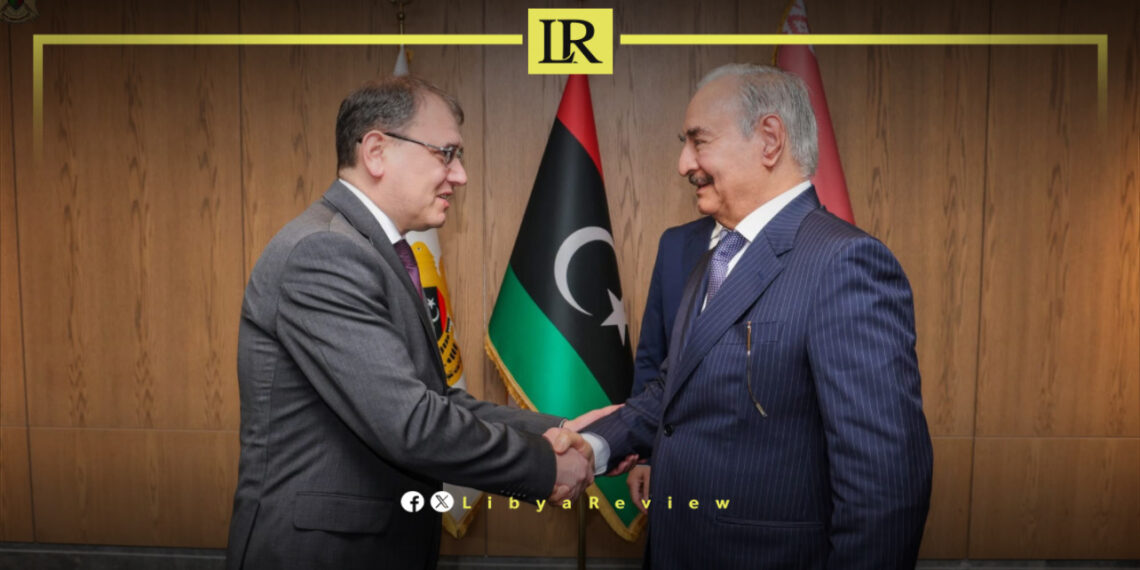Field Marshal Khalifa Haftar, Commander-in-Chief of the Libyan National Army (LNA), held talks with Belarusian Deputy Prime Minister Viktor Karankevich and his accompanying delegation at the LNA’s General Command headquarters.
Haftar welcomed the visiting delegation, emphasising the strong ties between Libya and Belarus. He highlighted the importance of enhancing bilateral cooperation across various sectors.
For his part, Karankevich conveyed the greetings of Belarusian President Alexander Lukashenko to Haftar and the Libyan people. He commended Haftar’s influential role both locally and internationally.
The meeting focused on expanding collaboration between Libya and Belarus in key sectors, including economic development, education, agriculture, and healthcare. Both sides discussed strategies to strengthen their partnership and explore new opportunities for cooperation.
This visit marks another step in Libya’s ongoing efforts to diversify its international partnerships and attract foreign expertise to aid in national development.
Libya has been in chaos since a NATO-backed uprising toppled longtime leader Muammar Gaddafi in 2011. The county has for years been split between rival administrations.
Libya’s economy, heavily reliant on oil, has suffered due to the ongoing conflict. The instability has led to fluctuations in oil production and prices, impacting the global oil market and Libya’s economy.
The conflict has led to a significant humanitarian crisis in Libya, with thousands of people killed, and many more displaced. Migrants and refugees using Libya as a transit point to Europe have also faced dire conditions.
The planned elections for December 2021 were delayed due to disagreements over election laws and the eligibility of certain candidates. This delay has raised concerns about the feasibility of a peaceful political transition.
Despite the ceasefire, security remains a significant concern with sporadic fighting and the presence of mercenaries and foreign fighters. The unification of the military and the removal of foreign forces are crucial challenges.


